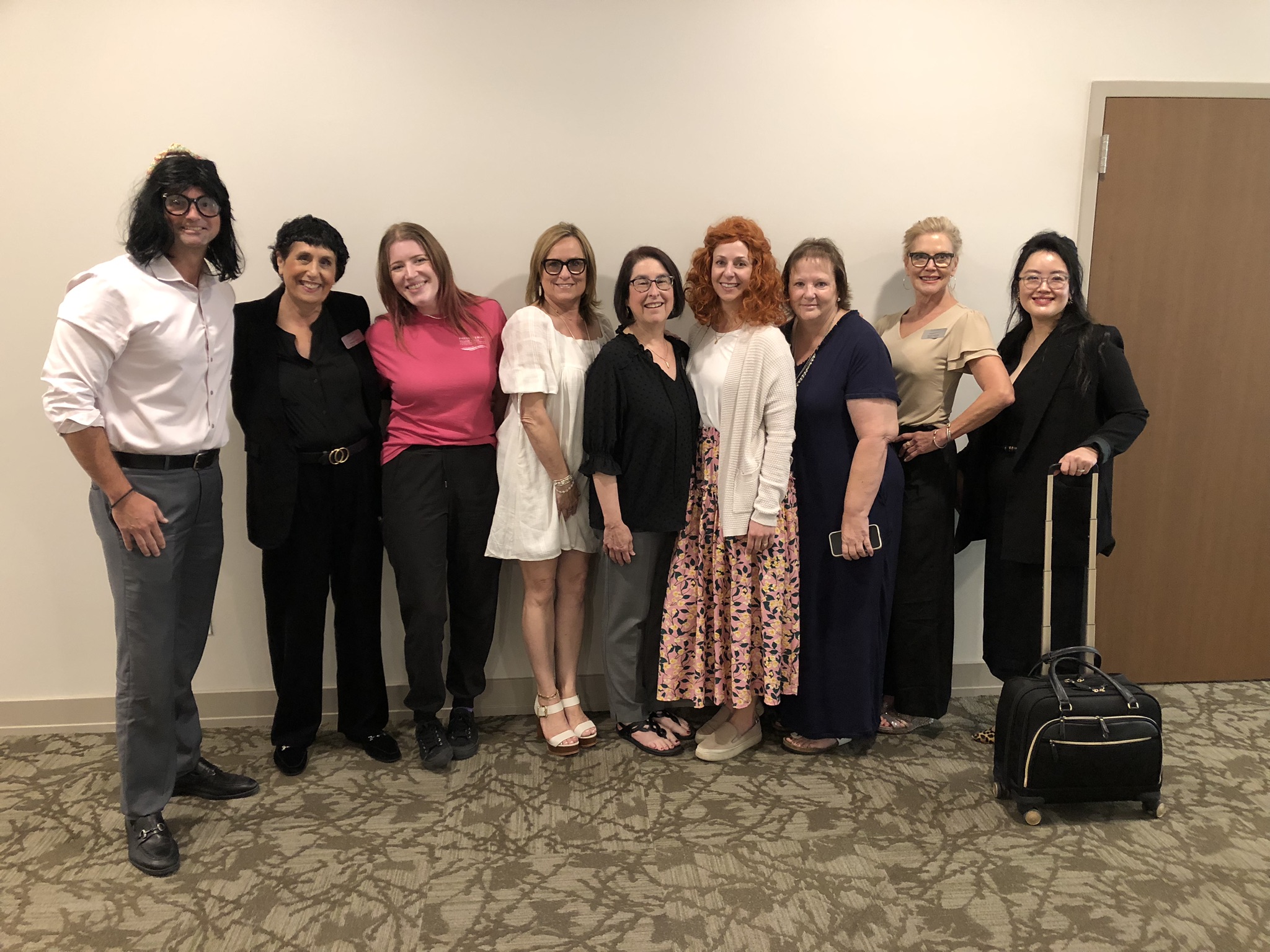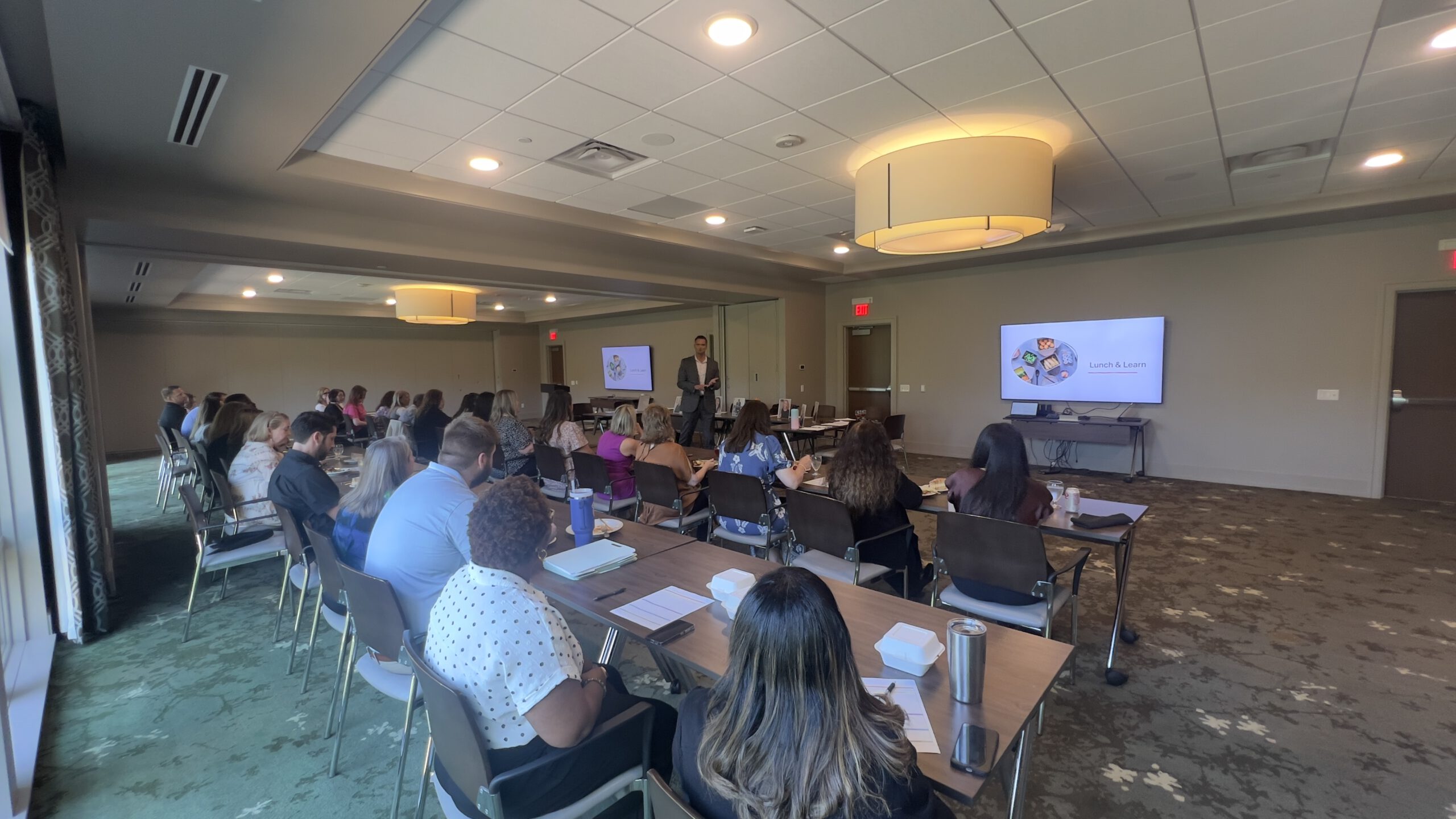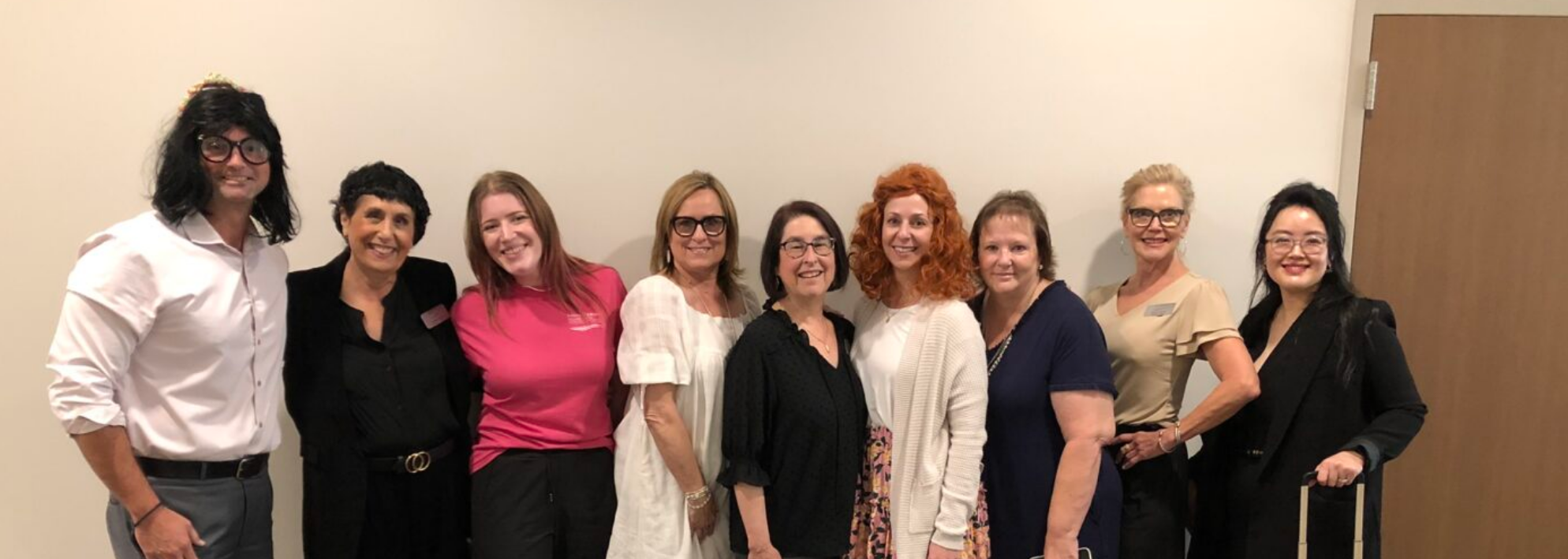At Presbyterian Village North (PVN), our commitment to providing exceptional care for our residents is at the heart of everything we do. One of the key ways we ensure this high standard is through our Continuum of Care (COC) team, which meets weekly to discuss each resident’s progression and changing needs. Recently, our team presented a skit during the monthly Forefront Living Lunch & Learn to illustrate the importance of these meetings and the collaborative process behind them.
The skit, performed by members of the COC team, was an engaging and insightful portrayal of the weekly meetings. It highlighted various scenarios in a playful way, showcasing how team members from different departments come together to share their observations and insights about each resident. This creative presentation underscored the essence of our interdisciplinary approach, where every perspective is valued and contributes to the holistic care of our residents.
The COC meetings are more than just a routine gathering; they are a critical component of our care strategy. Here’s why these meetings are so important:
- Comprehensive Resident Review:
Each week, the team conducts a thorough review of specific resident’s status. This includes physical health, emotional well-being, social interactions and any other relevant factors. By regularly monitoring these aspects, we can quickly identify and address any changes or concerns. - Interdisciplinary Collaboration:
Our team consists of professionals from various areas, including nursing, community life, therapy and activities. This diverse expertise ensures that all facets of a resident’s care are considered. The collaborative nature of these meetings fosters a deeper understanding of each resident’s needs and how best to meet them. - Proactive Problem-Solving:
The COC meetings enable us to anticipate and mitigate potential issues before they escalate. Whether it’s a medical concern, a dietary adjustment or a need for increased social engagement, having all departments involved allows for swift and effective solutions. - Personalized Care Plans:
The input from different disciplines helps in creating and updating personalized care plans for each resident. These plans are tailored to the individual, reflecting their unique needs, preferences and goals. The regular discussions ensure these plans remain relevant and responsive to any changes.
The presentation by our COC team also emphasized the ongoing nature of our commitment to excellence. We are constantly seeking ways to improve our processes and enhance the care we provide. Together, we can continue to enhance the quality of life for those we serve.




